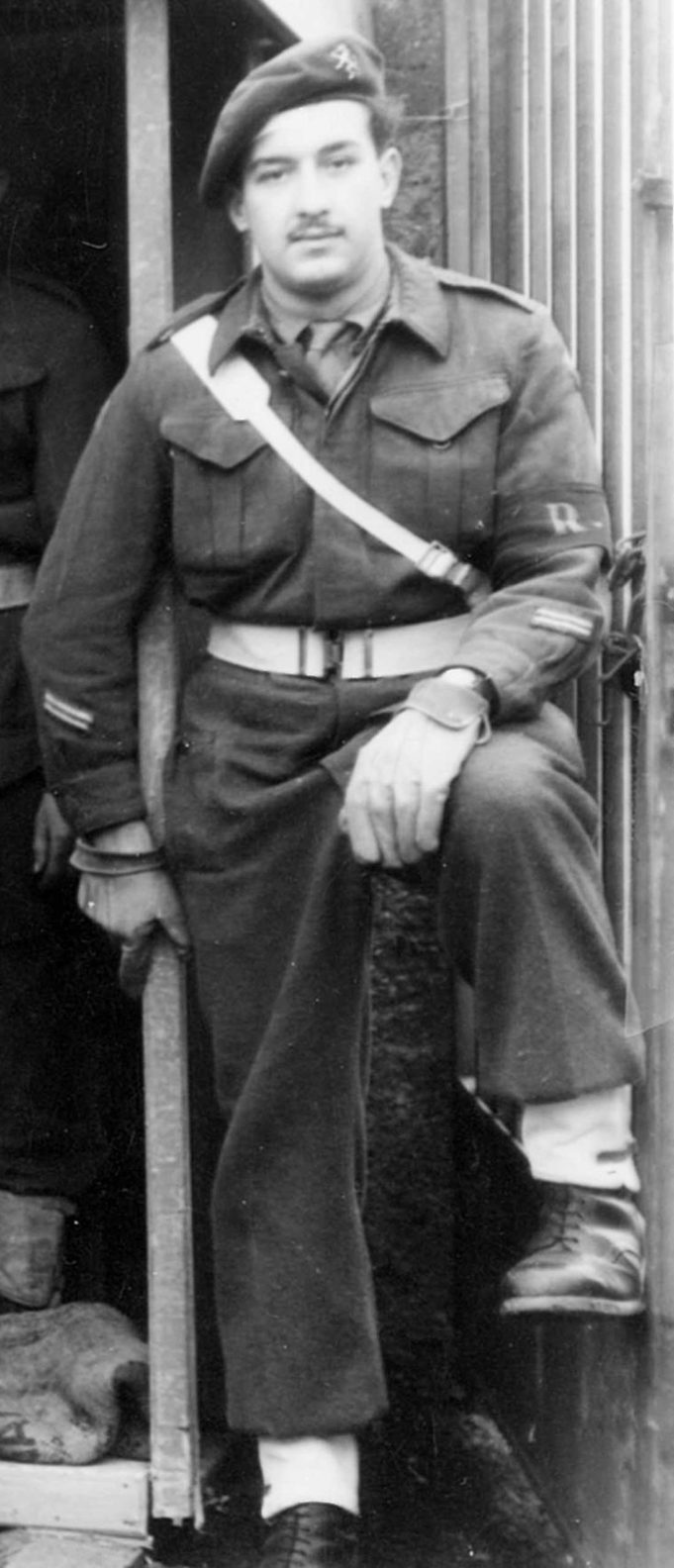Jon Lippens died in 2016, two years before his memoir was published. During the last year of his life, the Fort Worth WWII veteran recalled his story to friend J.W. Wilson over the course of several dozen meetings. Those interviews, transcribed, organized, and recently published as Portraits of a Soldier: The Extraordinary Life of Jon Lippens, tell a captivating tale — not so much for its prose but for the dutifully recounted, larger-than-life stories that unfold within its pages.
Lippens’ tone is matter of fact throughout the book. His easy-going descriptions of bloody and gory events make the historical retellings all the more shocking. The memoir’s opener, “Beginning,” sets the mood.
“The Germans had done things to people that were incomprehensible,” Lippens recalled. “I would not, for one split second, hesitate to put a bullet through a German’s head.”
He and his Belgian colleagues would have many opportunities to take revenge upon Nazis throughout the early and mid 1940s. Lippens was born in Ghent, Belgium, in 1927. He describes his idyllic childhood with nostalgia while hinting at the violent upheaval then looming to the east. When Germany invades Belgium in Chapter 2, Lippens saves ink for historical context from the perspective of the Belgians. The opening battles of WWII, whether depicted in mainstream documentaries, movies, or books, are generally focused on Poland and the subsequent fall of Paris. To reach France, Lippens notes, the Wehrmacht first had to conquer Belgium. His peace-loving country conscripted 800,000 men to fight in her defense. An overwhelming German invasion army decimated that force. When the bombings, artillery fire, and shooting ended, 13-year-old Lippens surveyed the devastation.
“The shredded remains of men lay scattered everywhere the eye could see,” he said. “At the canal locks, we witnessed German bodies floating in piles and backed up against the lock doors.”
In the middle third of Portraits of a Soldier, Lippens recounts his time serving the resistance. The teenager and his friends brainstormed ways to disrupt the occupying forces by sabotaging supply trucks. They would later escalate their efforts by methodically killing Nazis. As the resistance better organizes (under tacit leadership and support from London and the French resistance), Lippens is given a rite of passage. Several members of the Black Brigade (Belgium nationals who volunteered to serve the Nazis) were captured and presented for execution. Lippens, then 15, didn’t hesitate to join the firing squad. Assassinating Nazis often took careful timing, a bit of luck, and a sharp knife in Nazi-occupied Belgium, he said. Lippens and another resistance fighter later happened upon a high-ranking German officer who pulled his car over for a restroom break. Seeing an opportunity, Lippens followed the officer into the stall and slit his throat.
Following the Allied invasion of Normandy, 17-year-old Lippens joined the Allied army, first as a translator, then as an enlisted member of the reconstituted Belgian army. It was in April 1943 that the young soldier experienced his closest brush with death. While patrolling alongside a squad of 16 Belgian soldiers, Lippens’ comrades stumbled upon a German ambush. A machine gunner ripped the Belgian troops to shreds. Lying face down on the ground, Lippens survived by playing dead while a group of German infantrymen walked among the lifeless bodies nearby.
In the final chapters, Lippens portrays 1950s Fort Worth colorfully. His sister Lucienne and her American husband Don had urged Lippens to move to the Fort to begin a new life, which he did in 1952. His first impressions of the city were mixed.
“The sun was shining bright and hot as I pulled into town,” he recalled. “I continued down to the long Trinity Bridge and could see Forest Park [Boulevard] on the left. I stopped at a service station to ask for directions to Seventh Street. I was hot, tired, and hungry. I went into a convenience store called 7-Eleven right next to the Seventh Street Theater. I bought a four-pack of day-old Mrs. Baird’s sweet rolls and a six-pack of Lone Star beer.”
Portraits of a Soldier might have benefited from the writerly hand of an author willing to mill Lippens’ dense personal narrative into a softer, more nuanced biography. How did that make you feel? What did you think of that? What did it smell like? The memoir is singularly effective, though, at depicting Lippens’ harrowing life while shedding light on the little-known plight of the Belgians during WWII.
c will host a book signing with Wilson 5-8 p.m. Thursday at Wild Acre Brewing Company (1734 East El Paso St., Ste. 90, 817-882-9453)
Portraits of a Soldier: The Extraordinary Life of Jon Lippens, by J.W. Wilson
TCU Press
220 pps.
$24.95












